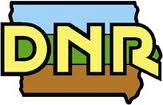CLICK HERE for the latest market quotes from the Iowa Agribusiness Network!
CLICK HERE for the latest market quotes from the Brownfield Ag News Network!
CLICK HERE for the latest market quotes from the Iowa Agribusiness Network!
CLICK HERE for the latest market quotes from the Brownfield Ag News Network!
The director of environmental programs for the Iowa Soybean Association says Iowa’s water quality issues have reached a “tipping point.” “We have to have strong soils. We have to have cleaner water. Our jobs and economy in this state depend on those things,” according to Roger Wolf, with the Soybean Association. A host of different ideas are percolating in the legislature for financing water quality projects.
They range from redirecting the “check-off” dollars farmers send to commodity groups when selling grain and livestock to using some state gambling taxes on water quality rather than state government infrastructure. Wolf says cleaning up Iowa’s water should be a “shared responsibility.” Jan Glendening, The Natural Conservancy’s state director, says it will take four BILLION dollars to address the problem.
“We have had significant water quality issues and natural resource issues for years here in Iowa,” Glendening says, “and it’s something we need to invest in.” On Friday, Iowa Environmental Council executive director Ralph Rosenberg floated the idea of collecting a “clean water fee” on every bottle of water sold in the state — to raise money for water quality projects.
“It’s urgent now. We don’t want to have a Flint,” Rosenberg says. “We want to be proud of our rivers and lakes. We want to be proud of our waters and that’s what’s urgent about it. And if it means we have to raise some taxes, then I think the public will support that as well.” Rosenberg, Glendening and Wolf all appeared on Iowa Public Television this weekend to discuss the issue.
(Radio Iowa)
Shelby County 4-H has received a $2,500 donation from America’s Farmers Grow Communities, sponsored by the Monsanto Fund and directed by local farmer Craig Weber of rural Elk Horn. Officials with the Shelby County Extension Service say the donation will help the organization provide positive youth development opportunities through the 4-H program.
When asked why he chose Shelby County 4-H Weber stated he “I just wanted it to go back to the kids.” Mary Taggs, Extension Educator with ISU Extension & Outreach; Shelby County would like to thank Monsanto and Craig Weber for their generous contribution to the Shelby County 4-H program. Taggs says “Donations such as this are imperative to the growth of our program. In a time when more and more parents are working outside of the home, there is an increased need for youth to participate in positive youth development programs such as 4-H. The goals of 4-H are to create productive citizens, outstanding communicators, effective leaders and successful learners.”
For six years, America’s Farmers Grow Communities has collaborated with farmers to donate over $22 million to more than 8,000 community organizations across rural America. Winning farmers will direct donations to nonprofits to help fight rural hunger, purchase life saving fire and EMS equipment, support ag youth leadership programs, buy much needed classroom resources, and so much more.
America’s Farmers Grow Communities partners with farmers to support local nonprofit causes that positively impact farming communities across rural America. Grow Communities is one program in the America’s Farmers community outreach effort, sponsored by the Monsanto Fund. Other programs include America’s Farmers Grow Ag Leaders, which encourages rural youth to remain in agriculture and provides $1,500 college scholarships to high school and college students pursuing ag-related degrees and America’s Farmers Grow Rural Education, which works with farmers to nominate rural school districts to compete for $10,000 and $25,000 math and science grants.
For more information, visit www.AmericasFarmers.com.
The grassland/field fire danger index in Shelby County has been downgraded from High to “Moderate” for at least the next few days. Shelby County Emergency Management Coordinator Bob Seivert says the recent moisture and humidity has allowed the area to “green up” as is normally the case in the Spring.
And, even though the danger of controlled burns spreading beyond the intended area is reduced for the time being, Seivert asks anyone who is planning to conduct a large controlled burn to contact the EMA. Doing so will reduce the number of dispatches to the area Volunteer Fire Departments for controlled burns that may be perceived as being out of control by concerned citizens.
is reduced for the time being, Seivert asks anyone who is planning to conduct a large controlled burn to contact the EMA. Doing so will reduce the number of dispatches to the area Volunteer Fire Departments for controlled burns that may be perceived as being out of control by concerned citizens.
Firefighters from Atlantic were called to the scene of a tractor fire Tuesday evening, north of town. The tractor was burning near some anhydrous tanks when the call came in at around 5:58-p.m. from FSC, located at 54464 Olive Street.
Authorities say after FSC employees completed fueling the tractor that was hooked to an anhydrous tank, a worker started the tractor and began to pull away from the fuel tank when the fire started. Employees quickly disconnected the tractor from the tank before fire fighters arrived. Firefighters were quickly able to extinguish the blaze.
No injuries were reported.
(Photo’s courtesy Mike Kennon, Cass County Emergency Management Agency)
State tax credits will soon be available to Iowa companies that make new products from what’s left over after ethanol and biodiesel are made from “biomass” like corn and soybeans. Governor Terry Branstad supports the concept and the Iowa House gave it final legislative approval Monday afternoon. Representative Mary Ann Hanusa, a Republican from Council Bluffs, says “This bill incentivizes new start-up companies in Iowa and other ventures to take the biomass feedstocks currently produced in Iowa and manufacture these new building block chemicals.”
Bill backers envision companies developing new products from the starches, sugars and oils that are the left-overs of biofuel production. “The federal Department of Energy has identified approximately 30 chemicals which provide that greatest market potential,” Hanusa says. The bill is “made to order” for Iowa, according to Hanusa, because the state leads the country in biofuel production.
“This bill will create new opportunities for research and development and has the potential for creating new businesses and new product lines,” Hanusa says. “…This legislation will open new horizons in industry, economic development and education across Iowa.” Companies that develop new products from biofuel production left-overs will apply to the Iowa Economic Development Authority for the tax credits.
The bill calls for a 10 million dollar cap on these tax credits each year. The 10 million will come from the Economic Development Authority’s already existing 170 million dollar account for a series of refundable state tax credits.
(Radio Iowa)
The field/grassland Fire Danger Index remains HIGH in Shelby County. Emergency Management Coordinator Bob Seivert says the next few days are expected to be windy. Drying, along with abundant sunshine, at least through Wednesday, will likely continue to contribute to the danger of controlled burns spreading beyond their intended area. There’s a 50% chance of rain Tuesday night through Wednesday morning, which Seivert says will allow the area to green-up a bit, thereby reducing the fire danger threat.
 Officials are still asking you to conduct any Controlled Burns during the early morning or late evening hours, when winds will be reduced or near calm.
Officials are still asking you to conduct any Controlled Burns during the early morning or late evening hours, when winds will be reduced or near calm.
MASON CITY, Iowa (AP) — Employers in northern Iowa are trying to fill a bounty of agricultural jobs. The Globe Gazette reports that local economic development officials are touting a series of jobs that are directly and indirectly related to farming. The list includes work in cooperatives, ethanol plants and feed mills, as well as full- and part-time jobs.
Low unemployment rates in area counties can make it tough to find employees. The rate in many counties around Mason City ranges between 3 and 5 percent, while the statewide average is 4.5 percent. Jennifer Andrade, an IowaWorks business marketing specialist, says her groups is encouraging more businesses to focus on outreach by visiting local high schools.
The Iowa Department of Natural Resources has scheduled a public hearing on rules covering the new hunter apprentice license for April 20, from 1-2 p.m., in the fourth floor conference room, Wallace State Office Building, 502 East Ninth Street, in Des Moines. The new Hunter Apprentice Program will allow Iowans age 16 and older to bypass the hunter education requirement for purchasing a hunting license while they hunt under the direct supervision of an experienced, licensed hunter. They may purchase the apprentice hunting licenses up to two times without having completed hunter education.
“The idea behind this program is to catch the generation of Iowans who missed hunter education when they were 12 and are now in their 20s and 30s and are interested in trying dove hunting or small game hunting,” said Megan Wisecup, hunter education administrator for the Iowa Department of Natural Resources. “If they like it, we can get them in the hunter education program and hopefully they become lifelong hunters.”
This apprentice program was approved by the Iowa legislature and signed by Governor Branstad during the 2015 session. At the public hearing, persons may present their views either orally or in writing. Participants will be asked to give their names and addresses for the record and to confine their remarks to the subject of the amendments.
Any persons who intend to attend the public hearing and have special requirements, such as those related to hearing or mobility impairments, should contact the Iowa Department of Natural Resources and request specific accommodations.
Any interested person may make written suggestions or comments on the proposed amendments on or before Wednesday, April 20, 2016. Written comments may be directed to Megan Wisecup, Law Enforcement Bureau, Department of Natural Resources, Wallace State Office Building, 502 East Ninth Street, Des Moines, Iowa 50319-0034; by email at Megan.Wisecup@dnr.iowa.gov; or by fax at (515) 725-8201. Persons who wish to convey their comments orally may contact Wisecup at (515) 238-4968 or by visiting the fourth floor of the Wallace State Office Building during regular business hours.
Hunters who need to satisfy the hunter education requirement can search for and sign up for a course at www.iowadnr.gov/huntered. Prospective students can see which courses or field days are near them; how many seats are available for the class or if the class is full and a waiting list is available. There is also a map showing the location along with the instructor’s name, a course overview and any special instructions.
Iowa law requires all hunters born after Jan. 1, 1972 to satisfactorily complete a hunter education course in order to purchase a license. Children as young as 11 may enroll in the course, but their certificate of completion will not become valid until their 12th birthday. Each year, around 12,000 students complete hunter education in Iowa.
Online Only Course Option for Adults:
The online only course for adults is designed for Iowa residents 18 years of age or older that have prior hunting and/or firearms handling experience. The course covers the same material as the classroom course, allowing the student to complete the entire course, including the final test, in an online setting. Certification is received at the successful completion of the online course.